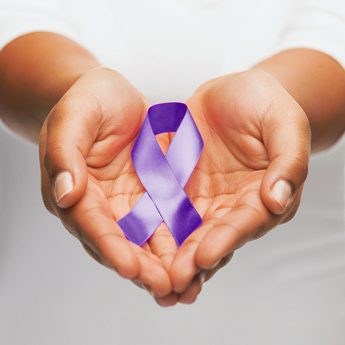 The World Health Organization (WHO) has marked 10 October as World Mental Health Day to raise awareness of mental health issues around the world. Sadly, despite our advances in science and technology, mental illness remains greatly misunderstood and feared.
The World Health Organization (WHO) has marked 10 October as World Mental Health Day to raise awareness of mental health issues around the world. Sadly, despite our advances in science and technology, mental illness remains greatly misunderstood and feared.
It is often perceived as something that happens to others, yet one in four people will experience a mental health problem during their lifetime.
WHO estimates that, in 2020, clinical depression will be the leading cause of disability worldwide, suggesting most of us will at some point come into contact with a mental illness, either directly or indirectly.
Only a quarter of those who experience a mental illness reach out for support; one of the most significant barriers is the fear of being judged negatively.
For many, the shame they feel they will bring upon themselves and their family is too great. This leaves a number of people trying to manage the problem on their own, either suffering in silence, or masking the pain with drugs or alcohol.
Mental illness is one of the biggest health problems facing our society, yet it rarely receives the resources it requires or the respect it deserves. Below are some of the more common questions TELL has been asked about mental health.
Is mental illness a real physical illness?
Yes. Mental illness is a real health problem, and many types have effective treatments. When someone breaks their leg, we wouldn’t expect them to just “get over it”.
Nor would we blame them if they needed a cast, or fail to help them while they recovered. Yet, sadly it is not always the case when someone has a mental health problem.
What causes mental illness and can people recover?
Mental illnesses are the result of a combination of genetics, biology, environment and life experiences. With the right kind of help, most people do recover and lead healthy, productive and satisfying lives. Families and loved ones play a key role in support and recovery.
Workplaces are filled with people who have experienced mental illnesses. Most people who experience serious mental illnesses want to work but face barriers to finding and keeping meaningful employment.
Do only adults get mental illnesses like depression?
Many mental illnesses first surface when a person is young, and may appear different in children. Mental illnesses and the associated stigma impact the way young people learn and build skills.
This can lead to challenges in the future, and sadly many are not receiving the help they need.
If we want to reduce the impact of mental illness on our communities, we need to learn the facts. Changing attitudes and behaviours takes time, and this is an area in which we can all play a role in making a difference.
You can help create a society, where mental health problems are not hidden in shame and secrecy, by ensuring your friend or relative is not afraid to speak out about their problems, or left wondering where they can turn for help.
We all have a role in creating a mentally healthy community that supports recovery and social inclusion, and reduces discrimination:
- Learn and share the facts about mental health and illness
- Get to know people with personal experiences of mental illness
- Speak up when friends, family, colleagues, or the media display false beliefs and negative stereotypes
- Continue offering the same support to people, even when they are physically or mentally unwell
- Don’t label or judge people with a mental illness; treat them with respect and dignity, as you would anyone else
- Talk openly of your own experience of mental illness. The more hidden mental illness remains, the more people continue to believe that it needs to be concealed.
World Mental Health Day is designed to raise awareness internationally, but you can help every day—not just on this specific day.
You can help by supporting those around you, and helping to change the attitude towards those suffering an illness like any other, and one that, with the right attention, can be cured, like any other.
TELL Lifeline is open 9am–11pm every day, and can be reached on 03 5774 0992. You need to talk? We’re here to listen.





